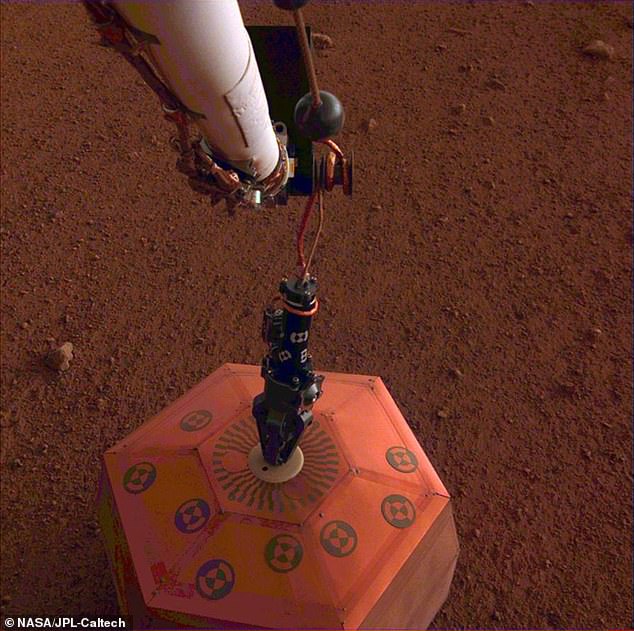

NASA’s InSight rover has provided the American space agency with weather reports, images and other interesting findings on Mars – but has struggled to probe its surface.
In nearly eight months, the land rover has only dug through 14 inches of the red planet’s surface, even though it was engineered to reach at least 16 feet to study how heat escapes from the interior.
This blunder has come down to InSight’s ‘mole’ heat probe’s inability to keep its footing in the soil – NASA believes the device is just bouncing in place.
InSight, NASA’s $1 billion rover, made landing on Mars in November 2018 after traveling through space for seven months.
And although it has been a key player in the Mars mission, it has failed to explore the planet’s interior.
However, NASA believes to have found why the self-hammering probe is not performing well and has a plan in place.
‘We’re going to try pressing the side of the scoop against the mole, pinning it to the wall of its hole,’ Sue Smrekar, InSight deputy principal investigator at NASA’s Jet Propulsion Laboratory in Pasadena, California, told CNN.
‘This might increase friction enough to keep it moving forward when mole hammering resumes.’
The team has also found that the location where InSight is currently digging is nothing like it has encountered on the mission, as it is cemented together and much thicker.
‘All we know about the soil is what we can see in images InSight sends us,’ said Tilman Spohn, principal investigator for the experiment. ‘Since we can’t bring the soil to the mole, maybe we can bring the mole to the soil by pinning it in the hole.’